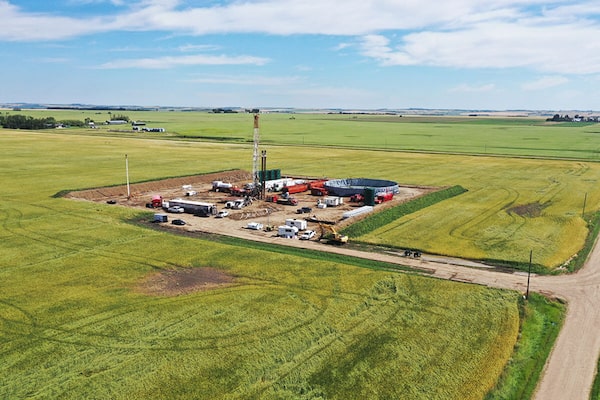
E3 Lithium
The lithium industry is bringing about massive change in Alberta – but the province is no stranger to major industry shifts.
Back in the early 1900s, engineering and geoscience projects lacked scrutiny. These industries needed oversight to ensure advancements were made with quality and public safety in mind. Enter the Association of Professional Engineers and Geoscientists of Alberta (APEGA), formed in 1920 with the important role of regulating engineering and geoscience on projects ranging from agricultural irrigation schemes to expanding the Banff Springs Hotel.
A century later, Alberta remains a site of innovation, with APEGA still working to protect public interest. Now, though, it’s also helping to propel the province toward an electric future.
According to S&P Global Platts Analytics, the production of lithium will need to triple by 2025 to more than 1.5 million metric tons to meet the projected demand. The driving force is clear: Lithium powers the batteries of electric vehicles (EV), and the EV market is growing at a rapid pace.
Between Canada’s 2030 Emissions Reduction Plan – which endeavors to reduce emissions below 2005 levels and ultimately achieve net-zero emissions by 2050 – and the government’s EV quota, the demand for lithium is poised to skyrocket. Alberta — a resource-rich province, home to the largest known sources of measured and indicated lithium in Canada, and one of the largest resources in the world — is currently on a global stage.
As the largest regulator of engineering and geoscience professionals in Western Canada, APEGA has more than 68,000 registrants and over 4,700 permit-holding companies. They ensure that the work of engineering and geoscience in Alberta is held to the highest standard of quality, safety, and ethics. “Our mission is to ensure Albertans can trust APEGA to regulate those professions, and that our registrants and permit holders understand and adhere to the obligations of practicing (them),” Nancy Biamonte, chief professional sustainability officer at APEGA, says. “Engineering and geoscience touch everything in our lives. That will only increase as the world transitions to a cleaner economy.”
Ms. Biamonte says APEGA members played a key role in the success of Alberta’s oil and gas sector. They will also be integral to the success of the clean energy age. APEGA’s job, she explains, will be to ensure that geoscientists and engineers are qualified to do the work.
Producing lithium, after all, is no small feat. From measuring its purity to ensuring clean extraction, Calgary-based resource and technology company E3 Lithium and its team of geoscientists are committed to using their expertise and cutting-edge lithium extraction technology to get it right. And APEGA is right there working with its membership and permit-holding companies to ensure that standards remain high.
“Critical rare metals, such as lithium, power the technology around us,” Ms. Biamonte says. “Alberta needs geoscientists to find these deposits. APEGA’s role, as the engineering and geoscience regulator, is to ensure our members have the high professional and ethical standards to guide the industry in finding and extracting these resources to drive Alberta’s economy forward.”
As the demand for geoscientists and engineers grows, so will questions around regulation and the skillset required to capitalize on this immense opportunity. Ms. Biamonte says new professionals who are carrying out what she calls “pivotal work” will benefit greatly from being APEGA members as well.
“The key benefit is that they can independently practice engineering and geoscience. It’s more than a benefit, it’s an obligation, because they must be registered to practice independently,” Ms. Biamonte says. If they are not registered, they must work under the supervision of a licensed professional. No one can independently practice engineering or geoscience in Alberta without being licensed by APEGA.”
Licensure ensures accountability by the professionals and by the permit-holding companies. The bedrock of public trust is knowing that they’re conducting themselves both safely and ethically with the necessary level of expertise and experience.
When asked what she considers the successful execution of APEGA’s work, Ms. Biamonte says, “When everything is working as it should, the public won’t hear from us because it means we are successfully fulfilling our duty to protect the public interest.”
Advertising feature produced by Globe Content Studio with APEGA. The Globe’s editorial department was not involved.